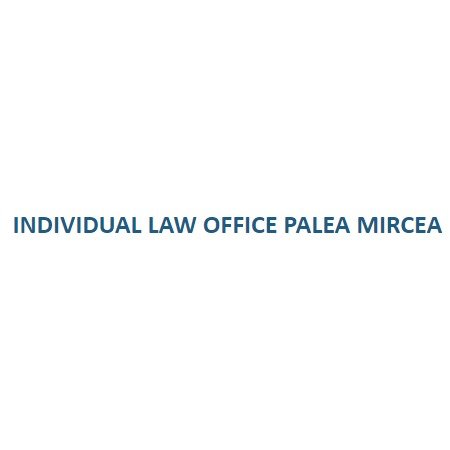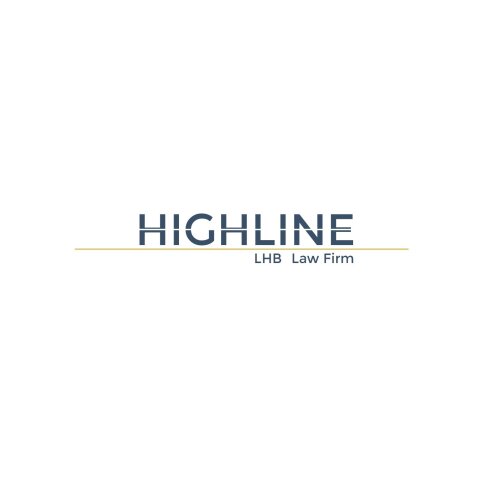Best Disability Lawyers in Romania
Share your needs with us, get contacted by law firms.
Free. Takes 2 min.
Or refine your search by selecting a city:
List of the best lawyers in Romania
About Disability Law in Romania
Disability law in Romania is designed to ensure the rights and integration of individuals with disabilities into society. The legal framework aims to provide equal opportunities and protect against discrimination. Disability rights have improved in Romania over the years due to increased awareness and legislative changes aligning with European Union directives. The focus is on accessibility, employment opportunities, social services, and empowerment of disabled individuals to lead normal lives.
Why You May Need a Lawyer
Legal assistance may be necessary in various situations involving disability in Romania. Common scenarios include disputes over entitlement to disability benefits, discrimination in the workplace, lack of accessibility in public institutions, or issues with guardianship and personal autonomy. A lawyer can also assist with filing complaints or appeals related to social services and ensuring compliance with EU and national regulations regarding the rights of individuals with disabilities.
Local Laws Overview
Key aspects of Romanian disability law include:
- Law No. 448/2006: This is the central legislative document concerning the protection and promotion of the rights of disabled individuals in Romania. It addresses areas such as employment, public accessibility, education, and healthcare for those with disabilities.
- Non-discrimination: Romanian law prohibits discrimination based on disability in various spheres, including employment, education, and access to services.
- Access to public buildings: Initiatives are in place to improve the physical accessibility of public infrastructure for individuals with disabilities.
- Financial support: Several benefits and subsidies, such as monthly allowances, are available for eligible disabled individuals to support their living conditions.
Frequently Asked Questions
What qualifies as a disability under Romanian law?
A disability is defined as a physical, mental, or sensory impairment that, in interaction with various barriers, may hinder the full and effective participation of the individual in society.
Am I entitled to disability benefits in Romania?
Eligibility for disability benefits generally depends on the degree of disability and whether the individual can support themselves financially. Documentation and assessment by medical professionals are required to determine the entitlement.
How can I claim disability benefits?
You need to submit a formal application along with medical records to the local government office responsible for social protection. The application is subject to review and approval.
Do employers have obligations to accommodate disabled employees?
Yes, employers are legally required to provide reasonable accommodations to ensure that individuals with disabilities can perform their job duties effectively, unless doing so would incur undue hardship.
How is disability discrimination handled?
Disability discrimination cases can be reported to the National Council for Combating Discrimination or pursued in court. Legal advice is recommended to navigate these processes.
What rights do disabled students have in education?
Disabled students have the right to inclusive education and must be provided with necessary accommodations to facilitate their learning. Schools are encouraged to adapt their curricula and environments to support the needs of these students.
Can I appeal a decision regarding disability benefits?
Yes, if your application for disability benefits is denied, you have the right to file an appeal through administrative or judicial procedures.
Are there specific housing rights for individuals with disabilities?
Individuals with disabilities have the right to accessible housing and may receive financial aid or priority in public housing allocations depending on their specific needs and circumstances.
What should I do if public services are not accessible?
Complaints about accessibility in public services can be submitted to relevant local authorities or ombudsman offices, with legal options available if issues are not resolved.
Are there organizations that protect the rights of disabled individuals?
Yes, several NGOs and advocacy groups focus on disability rights in Romania, actively working to ensure legal protections and policy development for individuals with disabilities.
Additional Resources
- National Authority for Persons with Disabilities: Governs policies and provides guidance on disability-related issues.
- National Council for Combating Discrimination: Addresses issues of discrimination and can offer assistance in relevant cases.
- NGOs and Advocacy Groups: Various organizations work towards advancing the rights and integration of individuals with disabilities, such as Special Olympics Romania and Motivation Romania Foundation.
- Legal Aid Clinics: Certain municipalities provide legal aid services that can assist individuals with disabilities in understanding and claiming their rights.
Next Steps
If you need legal assistance regarding disability in Romania, consider the following steps:
- Identify your specific legal issue and gather all relevant documentation, including medical records and previous correspondence related to your case.
- Consult with a lawyer specializing in disability law to understand the legal framework and options available to you.
- Contact relevant governmental bodies or advocacy organizations for additional support and information.
- Consider mediation or alternative dispute resolution methods as a first step, if applicable, to resolve the issue.
- Proceed with filing a formal complaint or taking legal action if necessary, with the guidance of your legal advisor.
Lawzana helps you find the best lawyers and law firms in Romania through a curated and pre-screened list of qualified legal professionals. Our platform offers rankings and detailed profiles of attorneys and law firms, allowing you to compare based on practice areas, including Disability, experience, and client feedback.
Each profile includes a description of the firm's areas of practice, client reviews, team members and partners, year of establishment, spoken languages, office locations, contact information, social media presence, and any published articles or resources. Most firms on our platform speak English and are experienced in both local and international legal matters.
Get a quote from top-rated law firms in Romania — quickly, securely, and without unnecessary hassle.
Disclaimer:
The information provided on this page is for general informational purposes only and does not constitute legal advice. While we strive to ensure the accuracy and relevance of the content, legal information may change over time, and interpretations of the law can vary. You should always consult with a qualified legal professional for advice specific to your situation.
We disclaim all liability for actions taken or not taken based on the content of this page. If you believe any information is incorrect or outdated, please contact us, and we will review and update it where appropriate.
Browse disability law firms by city in Romania
Refine your search by selecting a city.

















